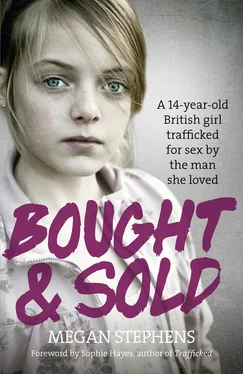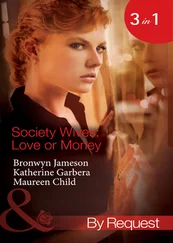As I was the oldest, it felt like my responsibility to look after my sister and the two other kids who stayed with us at the weekends. So when the screaming and shouting began to kick off downstairs, and the three of them looked at me with big, scared eyes, I told them stories and pretended I wasn’t frightened. The next morning, we would creep downstairs and start clearing up the mess the adults had made in the living room, in the hope that if they were pleased with us when they woke up, they wouldn’t be sullen and uncommunicative with each other.
Later, when I was in Greece, I often had the same feeling of almost desperately determined optimism that I used to have on those Sunday mornings at home as we picked up the overflowing, often overturned, ashtrays, empty beer cans and bottles, and disposed of the shattered remains of whatever objects the grown-ups had hurled across the room at each other. I can still remember the feeling of heart-stopping dread I had the morning we came downstairs and found blood smeared across the living-room walls. There were words written in it, as if someone had traced the letters with their finger. I can’t remember what the words were now. I just remember the way my stomach contracted painfully as I read them and that I thought I was going to be sick.
Despite the way it sounds, Mum was good at looking after us, most of the time. I know she really did want the best for my sister and me, and she worked hard to make sure we had everything we needed. I just wish she had realised at the time that all the fighting had a damaging effect – first the fights between her and Dad, and then the alcohol-fuelled rows that took place on Saturday nights with John and the couple who used to stay at our house at the weekends. Anyone who’s ever woken up as a child to the sound of their parents shouting at each other will know how it feels to lie awake in the darkness, listening but trying not to hear.
Sometimes, when Mum and John had had a particularly bad row, John would storm out of the house, slamming the front door behind him. He would often stay away for a few days, and while he was gone, Mum would just sit in the living room when she got home from work, watching television or listening to music and crying. It’s a horrible feeling as a child to be worried about your mum or dad: you feel as if you have to do something to put things right for them, but you don’t have the slightest clue what to do or how you would set about doing it even if you did.
There were many times when I wanted to hug Mum and make everything better for her. And other times when I was angry with her because she did something that made me feel anxious and frightened, although, at the time, I couldn’t have put that feeling into words.
When we moved out of that house, Mum didn’t want to go. But things between her and John were starting to unravel, and I think she hoped that by going along with what he wanted to do, she might be able to ward off their inevitable break-up. It didn’t work, of course. We hadn’t been in the new house very long when things started going from bad to worse. Mum and John were arguing almost constantly and then John lost his job and started staying at home all day, drinking. Every so often, they would have a huge row, John would storm out of the house and go to stay at his sister’s, and Mum would cry and mope and play loud music. After a while, they would get back together, I would let out the breath I had been holding, and for a few days everything would be all right. Then the whole miserable cycle would start all over again.
There were fields behind the house we had moved out of; it was in a nice part of town, on a nice street where two of my best friends also lived. So I was upset when Mum told me we were moving. And I was devastated when I discovered that our new house was on a rough housing estate where, for reasons I didn’t ever understand, kids like me who wouldn’t say boo to a goose were picked on and sometimes physically assaulted.
The only good thing about living in that house was Dean. Dean lived next door with his parents. When my sister and I saw him for the first time on the day we moved in, he was sitting on the garden wall holding a hedgehog. We had been watching him from our new bedroom window, and then he turned round and we ducked down out of sight. But we weren’t quick enough because he had already seen us, and when we looked out again he waved and beckoned for us to go outside.
Dean was a really lovely lad. I got to know him well over the next couple of years and we became good friends. It still breaks my heart when I think about how badly he was bullied and tormented by some of the other kids on that estate. He was about four years older than me, very good-looking and had a girlfriend when I first met him. Perhaps the people who made his life such a misery by repeatedly attacking his house, beating him up and spreading malicious, totally unfounded rumours about him knew before he did that he was gay.
I had always enjoyed and done well at school, so I was looking forward to moving up to secondary school. Because we had moved, I didn’t go to the one I was originally meant to go to; I went to one that was local to our new house, where it didn’t take the other kids long to identify me as a geek and where I was bullied almost from day one. I was put into the top set, and while my teachers praised and tried to encourage me, the kids in the playground pushed me, pulled my hair and occasionally punched me. Apparently, they didn’t like the way I talked or looked or the clothes I wore – or, of course, the fact that I was a geek.
One of the reasons I had been put into the top set was because I was a quick learner. So it didn’t take me long to realise that, as the bullies clearly weren’t going to change their behaviour, if I wanted to fit in, I was going to have to change mine. Within just a few months of starting at the school, I was dressing differently, I had dropped my ‘posh accent’ and adopted all the slang words the other kids used, and I had begun to mess around in lessons.
That was the first time I put into practice my ability to hide who I really am and pretend to be someone I’m not. I hated myself for doing it, but it worked: I was put down into a lower set at school and the bullies turned their spiteful attention to other targets. What I really hated though was the fact that my teachers were disappointed with me, although not as disappointed as I was with myself, despite my apparent indifference to their concern as they asked me, repeatedly, if there was something wrong.
Now that I was on the side of the bullies, if only peripherally, I began to make friends, one of whom was a girl called Carly. Like me, Carly had started out in the top set and been moved down when her behaviour deteriorated. She was better at ‘not caring’ than I was though, and one day, when we had skived off school together, she took me to the car park of an office block near where she lived, pointed to a van and said, ‘Let’s see what’s inside.’ The thought of breaking into anything made me feel sick with anxiety. But I sensed that it was a test and if I failed it, it wouldn’t be long before I was right back where I had started.
It was a stupid thing to do, particularly in a public place in broad daylight. Someone saw us and called the police, who caught us in the act and took us back to school in a police car, and then I was driven home. I was lucky to get off with a warning from the police, but I got into a whole load of trouble from my mum. Anyone who had heard me shouting back at her would never have guessed that I was embarrassed and ashamed of what I had done.
The second time the police became involved was when I was caught shoplifting make-up in a shopping mall with another friend. This time, they phoned Mum from the police station and told her to come and take me home. She was really upset and angry when she got there, and although I would have died rather than show it, I felt bad.
Читать дальше












